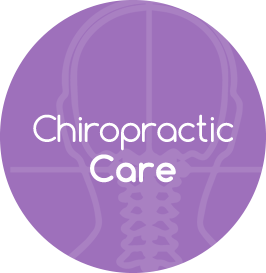The 20-year-old male reported on in the study had complaints of headache, nausea, dizziness, photophobia, and diplopia after suffering a concussion while playing hockey. This was the third concussion in five years. He also had trouble with short term memory, concentration, sleeping, and constant fatigue. He sought medical care and was told to rest.
The chiropractor examined him and found structural shifts in his neck, upper back, and shoulders. Decreased range of motion, swelling, and pain in his neck were noted along with muscle spasms in the neck and upper back muscles. X-rays confirmed these findings. These structural shifts can lead to obstruction of the nerves and it is this obstruction, called vertebral subluxations, that chiropractors correct.
Following chiropractic care, he experienced complete resolution of all symptoms after one week of care. He was asymptomatic for the remainder of his course of chiropractic care.
The study’s author called for additional research to investigate the clinical implications of chiropractic in this population.
Reference: Resolution of Post Concussion Syndrome in a 20-Year-Old Male Athlete Following Chiropractic Care: A Case Study & Review of the Literature. J. Angerami DC & O. Evans DC. Annals of Vertebral Subluxation Research ~ Vol. 2023.Post Concussion Syndrome – FACTS
Post Concussion Syndrome is the presence of symptoms usually three months or more beyond the normal two-week course of recovery after a head injury, concussion. It can also be caused by things like carbon monoxide poisoning, chemical exposure, viral or bacterial infections, surgery, or transient ischemic attack.
Post Concussion Syndrome symptoms usually fall into four categories: Cognitive, Sleep, Mood/Behavioral, Physical. Cognitive symptoms include difficulties with attention, memory, focus, finding things, and brain fog. Those with post concussion syndrome will begin to have issues falling asleep and sometimes become more irritable and may experience anxiety, depression, and low motivation. Physical symptoms can include neck pain, headaches, dizziness, nausea, and sensitivity to light and sound. People suffering from post concussion syndrome will experience symptoms at rest and/or during activity.
Various tools are used to evaluate for post concussion syndrome, including a thorough history, physical examination, and other neuropsychological testing. Although there is no one test available to diagnose Post Concussion Syndrome, a CT scan of the brain may be performed to check for brain damage and an MRI may be used to detect any structural brain abnormalities. Treatment will depend on the symptoms but could include therapies and medications.
Cervical spine injury and concussions are both forms of traumatic injury that can occur, often concurrently, in events such as motor vehicle accidents, falls, or sports injuries. The cervical spine is the uppermost part of the spinal column, located in the neck and responsible for supporting the skull and enabling neck movement. A concussion is a mild traumatic brain injury typically caused by a blow to the head or body that shakes the brain inside the skull. The two injuries can be related in that the same impact force can cause both a cervical spine injury and a concussion.
According to researchers the nervous system controls and coordinates all functions of the body and structural shifts in the spine can occur that obstruct the nerves and interfere with their function. It is this obstruction, called vertebral subluxations, that chiropractors correct. By removing the structural shifts, chiropractic improves nerve supply and function. Chiropractic adjustments reducing the structural shifts that obstruct nerves associated with vertebral subluxation may help those suffering with post concussion syndrome.


